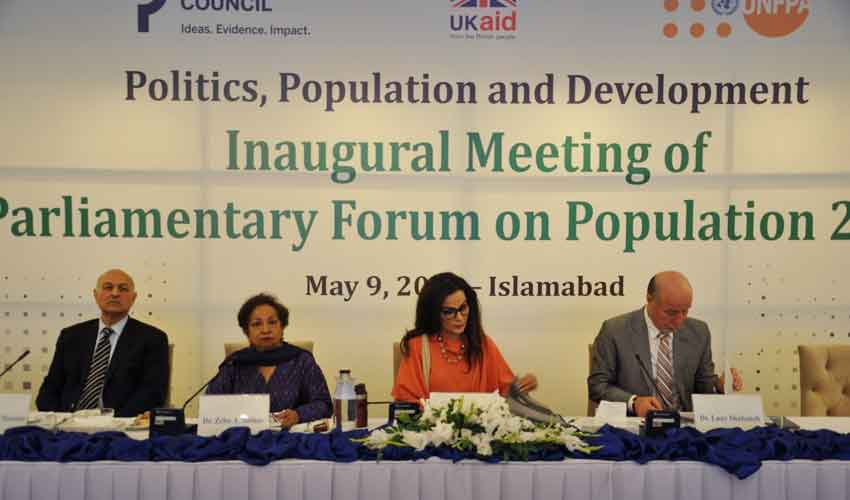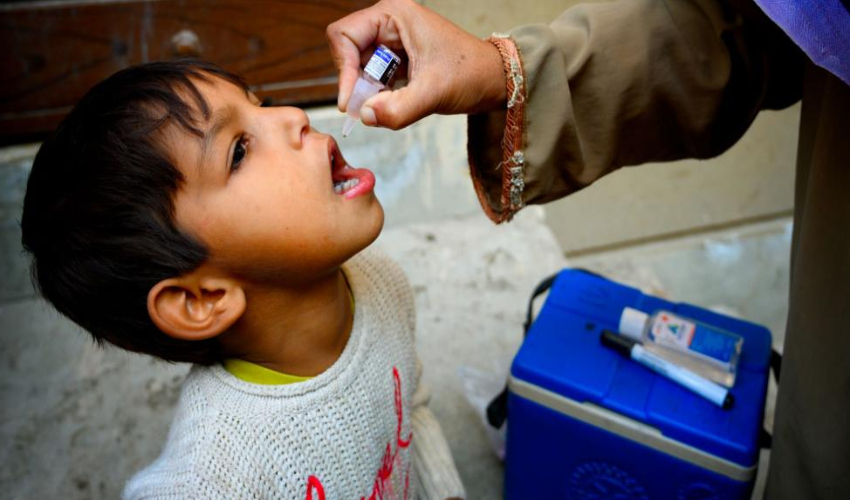PPP Senator Sherry Rehman has said that curbing Pakistan's runaway population growth rate demands a united political front.
"We need to transcend political differences for greater national cause and all political parties should sign a charter of population." she said while addressing the inaugural meeting of Parliamentary Forum on Population (PFP) held after the 2024 general elections, organized by the Population Council with the support of United Nations Population Fund.
The former minister also emphasized increased investment and stronger legislation on family planning programs, which could accelerate Pakistan’s progress across social, economic and environmental areas of sustainable development.
“The resources of the country are stretched thin by rapid population growth, which hinders the achievement of development goals like education, employment opportunities, and access to basic necessities," she added. She also praised a cross-party consensus on the population agenda at the PFP and emphasized the need for a harmonious balance between population and resources for the progress of the country.
The forum was launched in March 2020, with the aim to raise parliamentary awareness on population and development, sustain cross-party political commitment, and advocate for population stabilization.
In her welcome remarks, Dr Zeba Sathar, country director of the Population Council, drew attention to Pakistan's current fertility trends and the broad impact of population growth on the country's development indicators.
She remarked, "With a 241.5 million population, and staggering intercensal growth rate of 2.55%, the Population Census 2023 showed a rapid increase in population which poses a significant challenge to the country's development as well as underscores the imperative for strong political resolve."
She emphasized the far-reaching consequences of rapid population growth, highlighting its negative impact on various development indicators. “Six million Pakistani couples are unable to exercise their right to plan families due to lack of availability and access to family planning services. If Pakistan was closer to the fertility levels of the rest of the region, it could have saved thousands of mothers from dying, would have fewer out-of-school children, and less Pakistanis living in poverty."
Former senator and PFP Secretary General Mushahid Hussain Sayed highlighted the importance of prioritizing population issues beyond party affiliations, stating, "Population should be above party line and taken as a national issue. Parliamentarians have a critical role to play in holding governments accountable to improve service delivery of family planning services and ensuring the implementation of their respective party manifestos' commitments regarding population issues."
MQM MNA Dr Farooq Sattar called for revisiting the National Finance Commission (NFC) and separating population considerations from the distribution of divisible pool resources among provinces. He stressed the importance of fulfilling people's right to family planning through sustainable, equitable, and sensible allocation of resources.
Speaking on the occasion, MNA Naveed Qamar proposed the establishment of population caucuses at the federal and provincial assemblies with representatives from all parties to develop and advocate for effective policies to lower fertility rates of the country.
Dr. Luay Shabaneh, country representative of UNFPA Pakistan, commended the bipartisan consensus at the meeting and urged parliamentarians to prioritize addressing rapid population growth.
He said, “This forum has four key functions to perform: enact supportive legislation that empowers individuals to make informed choices about the number of children they desire, hold governments accountable, ensure the implementation of recommendations put forth by the Council of Common Interests (CCI) and ensure strategic allocation of resources towards population, healthcare, education, and social protection initiatives.”
In their comments, the parliamentarians emphasized that population was a critical national issue that required immediate attention. It is important to address misperceptions among citizens that hinder the uptake of family health services.
The role of religious scholars in creating greater social acceptability of family planning was emphasized by National and provincial assembly parliamentarians. It was suggested that religious leaders should promote responsible parenthood and address religious misperceptions among the masses.
Parliamentarians also urged propagating the consensus of all major religious scholars on the permissibility of birth spacing in Islam as a means to save mothers’ lives to ensure the wellbeing of the family, which is a basic human right. The parliamentarians advocated for the inclusion of family planning and sustainable population within secondary and higher secondary curricula.
They reiterated the government's role in providing education to girls, addressing child marriage issue, including mandatory pre-marital counselling, and countering socio-cultural myths surrounding family planning by strengthening local governments and initiating grassroots awareness campaigns.



























